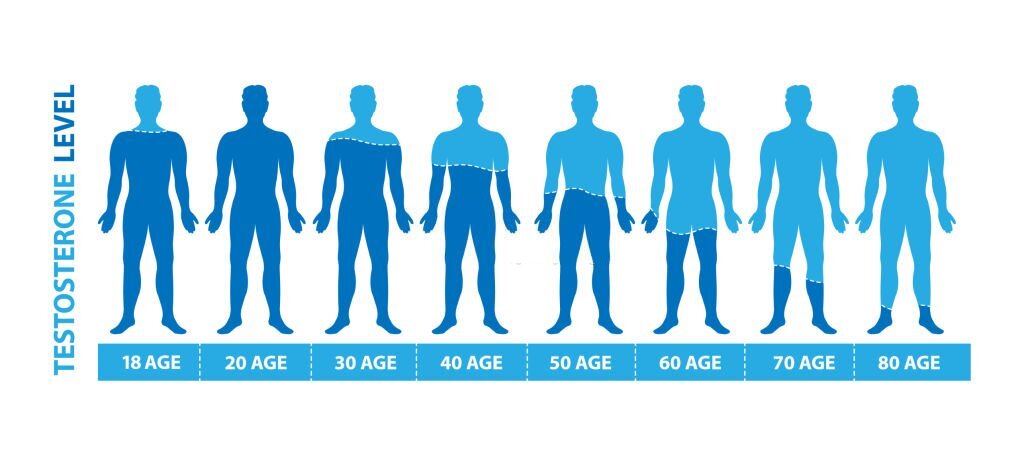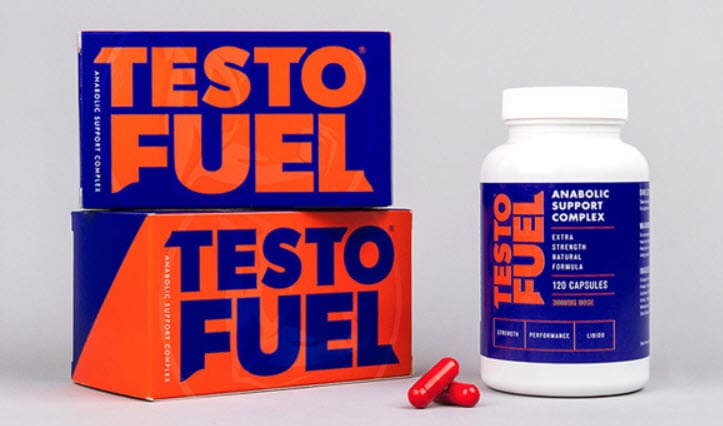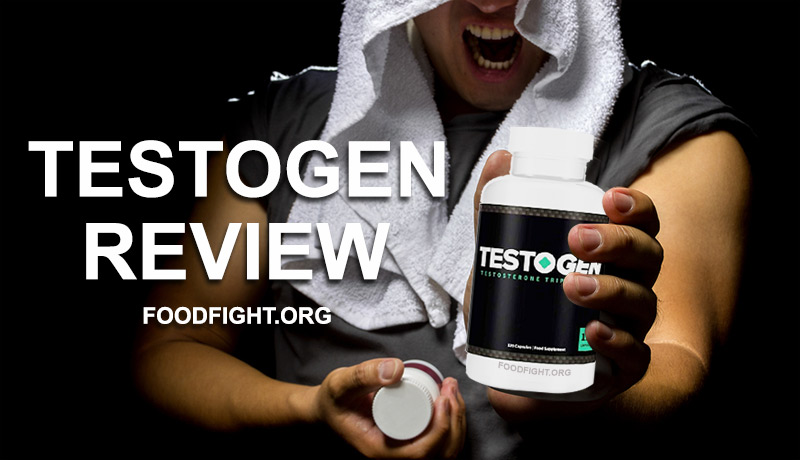Testosterone is essential for men's health and wellbeing, and understanding free testosterone levels is key to making sure your body is functioning properly.
Knowing the average free testosterone levels by age can help you understand if yours are in a healthy range.
For example, did you know that the average testosterone level for a 20-year-old male is 270 ng/dl?
That's just one data point of many that will help you keep an eye on your own free testosterone levels.
Free testosterone levels are affected by lifestyle factors such as diet, exercise, stress, smoking and alcohol consumption. Low testosterone levels can cause symptoms like fatigue, low libido or mood swings and can be treated with medication or lifestyle changes.
It's therefore important to understand what can affect your free testosterone levels so that you take control of your health and wellbeing today!
Key Takeaways
- Free testosterone levels are essential for men's health and wellbeing.
- Average free testosterone levels decline naturally with age.
- Lifestyle factors such as diet, exercise, stress, smoking, and alcohol consumption affect free testosterone levels.
- Regular monitoring of free testosterone levels can identify potential hormonal imbalances and provide insight into why certain symptoms may be occurring.
The Importance of Testosterone for Men's Health
Testosterone is essential for men's health – it affects everything from your energy levels to your emotional well-being. So, it's important to keep track of your testosterone levels as you age.
Free testosterone levels by age provide a rough indication of what is considered normal and can help inform decisions about lifestyle changes or medical treatments that might be necessary.
Monitoring free testosterone levels can also help identify potential hormonal imbalances before they become more serious.
Understanding how free testosterone levels vary with age is an important part of being an informed patient.
As you get older, the amount of free testosterone in the body naturally declines, which can lead to a wide variety of symptoms and health issues if left unchecked.
Because of this, it's important to monitor your normal free testosterone levels at regular intervals throughout your life in order to maintain optimal health and wellbeing.
Understanding Free Testosterone Levels
Understanding your hormones is key to maintaining a healthy body, and free testosterone is an important one. Here are three key facts to keep in mind:
- What's a high testosterone level? A typical range for an adult male's total testosterone level is between 300 and 1,000 nanograms per deciliter (ng/dL).
- Free testosterone percentage range? The free testosterone percentage typically ranges from 2% to 5%.
- Testosterone belongs to the family of hormones known as androgens that play a role in male characteristics such as muscle strength development.
It's important to understand how your free testosterone levels fit within these ranges so that you can identify any issues or changes.
Knowing what constitutes normal levels of free testosterone can help you take preventative action if necessary.
Additionally, it helps provide insight into why certain symptoms may be occurring in the body.
Transitioning into the subsequent section about “average free testosterone levels by age,”it's important to understand both absolute values and trends across different age groups.
Average Free Testosterone Levels by Age
The average free testosterone levels vary throughout different life stages, so it's important to be aware of the changes that can occur as you age.
| Age Group | Average Free Testosterone Level (ng/dL) |
|---|---|
| 18-29 | 270-1,070 |
| 30-39 | 240-950 |
| 40-49 | 210-830 |
| 50+ | 180-750 |
As you can see from the table above, free testosterone levels tend to decrease with age. Generally speaking, men aged 18 to 29 have the highest average free testosterone levels at between 270 and 1,070 ng/dL.
By contrast, men aged 50 or older typically have lower average free testosterone levels ranging from 180 to 750 ng/dL.
It's important to be aware of these age related changes in order to understand how they may affect your overall health and well being.
Having an understanding of the factors that affect free testosterone levels is also essential for maintaining optimal hormone balance throughout your lifetime.
Factors That Can Affect Free Testosterone Levels
Knowing your own body's natural levels of free testosterone is key to maintaining hormone balance as you age. There are several factors that can affect free testosterone levels, both positively and negatively.
For instance, lifestyle choices such as diet, exercise, and smoking can influence the amount of free testosterone available in the body. Stress can also play a role in reducing or increasing free testosterone levels due to its effects on cortisol production.
Certain medications may also impact free testosterone levels – such as certain types of oral contraceptives or corticosteroids – which could be the reason for a decrease in libido or other issues that stem from low-testosterone.
Additionally, age itself can have an effect on free testosterone levels with men aged 45 or older having significantly lower amounts than those under 45 years old.
As you grow older, it becomes important to monitor your own free testosterone levels regularly so that any changes can be detected early and corrective action taken if necessary.
Understanding how various factors can influence your own personal level of free testosterone is key to achieving hormonal balance throughout life's different stages.
Next, we'll look at symptoms of low-testosterone and treatment options available if needed.
Symptoms of Low Testosterone and Treatment Options
If you're experiencing any changes in your libido or energy levels, it could be a sign that your testosterone is low, and it's important to consider treatment options.
Low testosterone can cause a range of symptoms, both physical and emotional.
Physical symptoms include reduced muscle mass, increased body fat, fatigue, erectile dysfunction, and decreased sex drive. Emotional symptoms can include depression and irritability.
It's important to note that not all men with low testosterone will experience the same symptoms; some may have only one or two while others may have several.
It's also important to understand that there are treatment options available for those who do experience the symptoms of low testosterone.
Testosterone replacement therapy (TRT) is one option for treating low testosterone levels that has been found to be effective in many cases. TRT involves taking synthetic hormones to replace the lost testosterone in the body and improve symptoms.
Other treatments include lifestyle changes such as improved diet and exercise habits as well as medications such as aromatase inhibitors or 5-alpha reductase inhibitors which can help reduce the conversion of free testosterone into other hormones like estrogen.
| Option | Benefits |
|---|---|
| Testosterone Replacement Therapy (TRT) | Can increase hormone levels in the body & improve associated symptoms |
| Lifestyle Changes | Improving diet & exercise habits can increase natural production of hormones & improve health overall |
| Medications | Aromatase Inhibitors & 5-Alpha Reductase Inhibitors may help reduce conversion of free testosterone into other hormones like estrogen |
Frequently Asked Questions
How long does it take for testosterone levels to increase after taking a supplement?
It depends on your body and the particular supplement you're taking.
Generally speaking, it can take several weeks to months before any increases in testosterone levels become noticeable.
You should also consider that not all supplements will work for everyone and results may vary, so it's important to be patient while tracking any changes in your testosterone levels after taking a supplement.
Is there a difference between free and total testosterone levels?
Yes, there is a difference between free and total testosterone levels.
Free testosterone refers to the amount of unbound testosterone in the blood, while total testosterone refers to the combined amount of both bound and unbound testosterone.
The difference between these two measurements is important because free testosterone can more easily be used by the body for various processes, whereas bound or total testosterone cannot.
Therefore, free testosterone levels are typically considered to be a better indicator of overall health than total testosterone levels.
What lifestyle changes can I make to naturally increase my testosterone levels?
Making lifestyle changes to naturally increase testosterone levels is achievable.
Eating a balanced diet high in healthy fats, exercising regularly, and getting enough sleep are effective ways to increase testosterone production.
Healthy fats, such as those found in olive oil, nuts, and avocados, can help boost testosterone levels. Regular exercise, including strength training, has been shown to positively affect testosterone production.
Lastly, getting adequate, restful sleep each night is essential for optimal hormone balance and may lead to higher testosterone levels.
How often should I get my testosterone levels checked?
It's a bit like a game of chess: you want to think ahead and plan your moves carefully when it comes to getting your testosterone levels checked.
How often should you do it? Well, it depends on your age and lifestyle factors.
Generally speaking, men over the age of 35 should consider getting their testosterone levels checked annually, while younger men may not need to be tested as frequently.
If you have any specific health concerns or are experiencing symptoms related to low testosterone, such as fatigue or decreased libido, then regular testing is recommended so that any changes can be monitored closely.
Are there any natural herbs or foods that can help boost testosterone levels?
Yes, there are natural herbs and foods that can help boost testosterone levels. Herbs such as tribulus terrestris, nettle root extract, and fenugreek have all been shown to increase levels of testosterone in the body.
Additionally, certain foods like eggs, dark chocolate, oysters, nuts, and seeds are all good sources of nutrients that are known to increase testosterone production.
However, it's important to note that these foods should be eaten as part of a balanced diet in order to get the most benefits from them.
Conclusion
As a man, it's important to understand your free testosterone levels. It can be challenging to keep track of them as you age, but it's worth the effort.
Testosterone is essential for many aspects of male health and wellbeing. Keeping your free testosterone levels at a healthy level can lead to increased energy, an improved libido, stronger bones and muscles, and overall better physical health.
Symbolically speaking, maintaining healthy free testosterone levels is like taking care of a garden—it requires regular maintenance but yields bountiful rewards!






